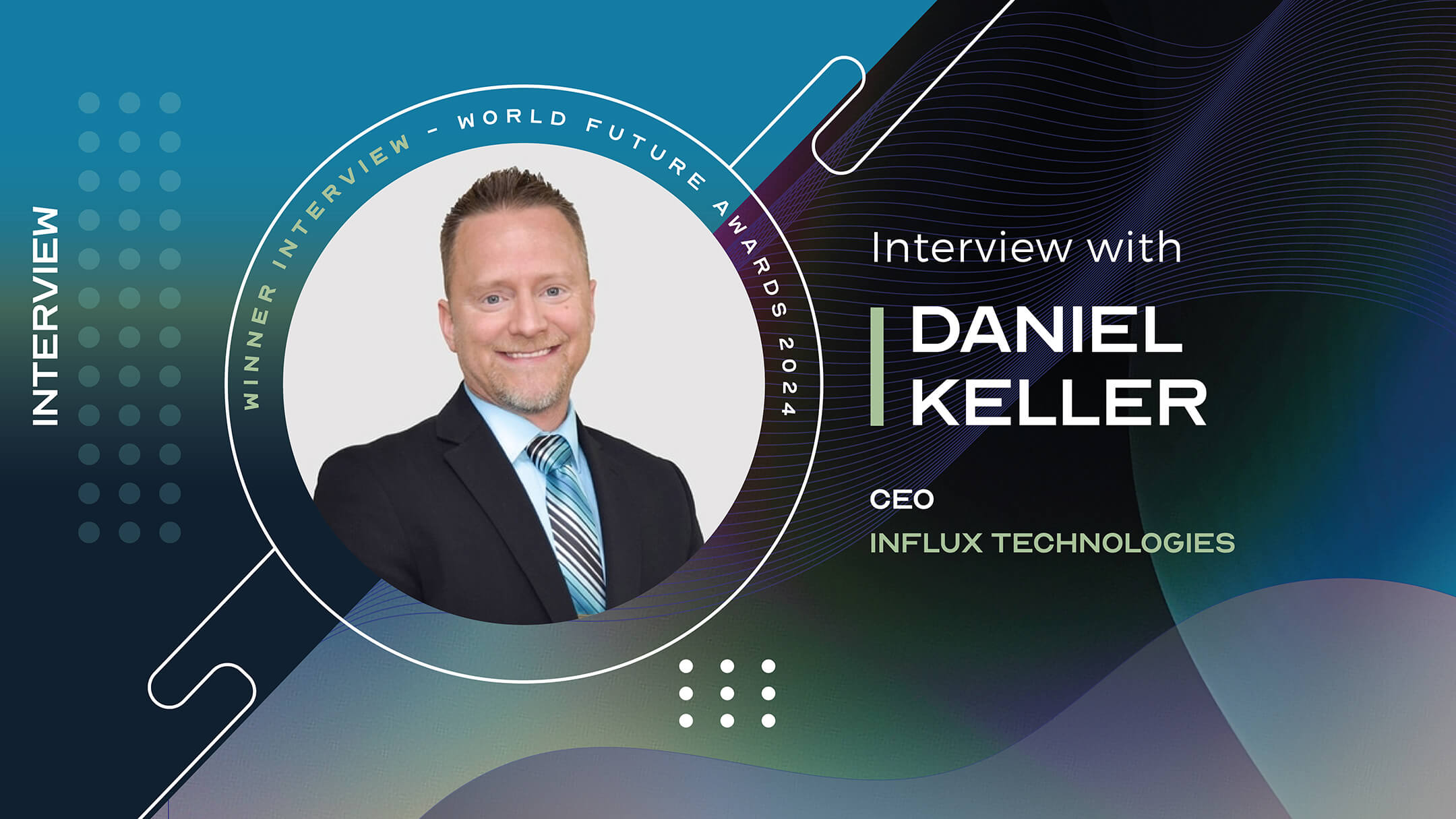
Decentralizing the Future: An Insightful Conversation with Daniel Keller, CEO of InFlux Technologies
In an era of rapid digital evolution, InFlux Technologies (Flux) has emerged as a leader in decentralized cloud infrastructure. Recently recognized as one of the Top 100 Crypto and Blockchain Companies of 2024 by World Future Awards, Flux offers a revolutionary alternative to traditional cloud services. Through its globally distributed network of user-operated computational nodes, Flux delivers superior scalability, security, and availability for decentralized applications (dApps).
Originally founded in 2018 as Zel Technologies, Flux bridges the gap between traditional Web2 infrastructure and the decentralized future of Web3. With a suite of innovative solutions—including FluxOS, FluxNodes, FluxLabs, and Fusion—the company empowers developers and enterprises with greater control over their data.
In this exclusive interview, we speak with CEO Daniel Keller about Flux’s remarkable journey, its progressive offerings, and the future of decentralized technology.

World Future Awards: As a pioneer in decentralized cloud infrastructure, how do you envision the future of the internet evolving over the next decade, and what role do you see InFlux Technologies playing in that transformation?
Daniel Keller: The internet will continue to grow, reshaping our lives and work. Over the next decade, advancements in AI, blockchain, and other technologies will change how we create, store, and digest data. This evolution will bring in an era of hyper-connectedness, where decentralized networks and cloud infrastructures like those built by InFlux will take center stage.
As AI-driven services continue to develop, the need for scalable, secure, and decentralized systems will be key to be able to handle the massive amounts of data being generated. Centralized models, while effective, face issues with privacy, security, and scalability. InFlux is leading the charge in decentralized cloud infrastructure, which offers key benefits such as greater data autonomy and the ability to scale without reliance on centralized control.
In this new internet landscape, decentralized solutions will provide businesses and individuals with unprecedented control over their data, freeing them from the constraints of traditional cloud providers. InFlux is positioned to be a cornerstone of this transformation, empowering the future of the internet by offering infrastructure that is not only resilient but also aligned with the decentralized ethos of Web 3.0.
WFA: What are some of the most significant challenges you’ve faced in transitioning from traditional cloud services to decentralized solutions, and how has InFlux Technologies addressed these hurdles?
Daniel Keller: Transitioning from traditional cloud services to decentralized solutions has presented many challenges as we are dealing with iterative tech. At InFlux, we’ve had to build many of these solutions from the ground up, such as our Decentralized 2FA, FluxOS, and FluxCore, to create a tech that integrates with blockchain technology.
The challenge lies in designing systems to maintain the same level of security, efficiency, and user experience we have come to expect from centralized cloud services. These technologies had never been developed before in this way, which required us to innovate at every step, ensuring that they worked in tandem with the blockchain. Through iteration and a commitment to solving these challenges, we’ve been able to successfully implement solutions that support a secure, scalable, and decentralized cloud infrastructure.
WFA: In what ways does Flux’s platform empower users and developers to not only participate in but also innovate within the decentralized ecosystem, particularly in the context of AI and machine learning?
Daniel Keller: Flux’s platform empowers users and developers to innovate within the decentralized ecosystem, particularly in AI and machine learning. By providing a scalable and decentralized infrastructure, Flux removes the limitations of traditional, centralized cloud services. This flexibility allows developers to deploy AI and machine learning applications in an environment that promotes faster experimentation and iteration. Flux’s infrastructure enables seamless deployment, offering the resilience needed for scaling solutions without the typical constraints.
The integration of Docker for FluxCloud further enhances the platform’s capabilities. By using Docker containers, developers can easily package and deploy applications across Flux’s decentralized network, ensuring portability, scalability, and security. This allows developers to tap into distributed computing resources, reducing latency and ensuring consistent performance for applications. Flux’s decentralized model makes for a collaborative environment where developers can contribute, innovate, and benefit from a globally distributed ecosystem, positioning them at the edge of AI and machine learning advancements.
WFA: How does the globally distributed network of user-operated nodes influence the culture and community around Flux, and what initiatives are you pursuing to foster collaboration among your users?
Daniel Keller: Our globally distributed network of user-operated nodes is a fundamental aspect of the culture and community around Flux. This decentralized infrastructure ensures that no single entity controls the network, aligning with our core values of transparency, security, and community empowerment. The participation of users in running nodes gives them a sense of ownership and involvement, which fosters a strong, collaborative community. The decentralized nature of the network also enhances global connectivity, allowing people from different regions and backgrounds to contribute and innovate together.
To further encourage collaboration, we have launched several initiatives. One such program is FluxLabs, an incubator designed to support developers and projects that leverage the Flux ecosystem. We also promote open-source collaboration through our GitHub repositories, where community members can contribute to the codebase, suggest improvements, and share their innovations. Regular community events, hackathons, and bounties incentivize participation and innovation, ensuring that the Flux ecosystem remains vibrant and driven by its user base. These initiatives help to cultivate a collaborative culture where innovation thrives.
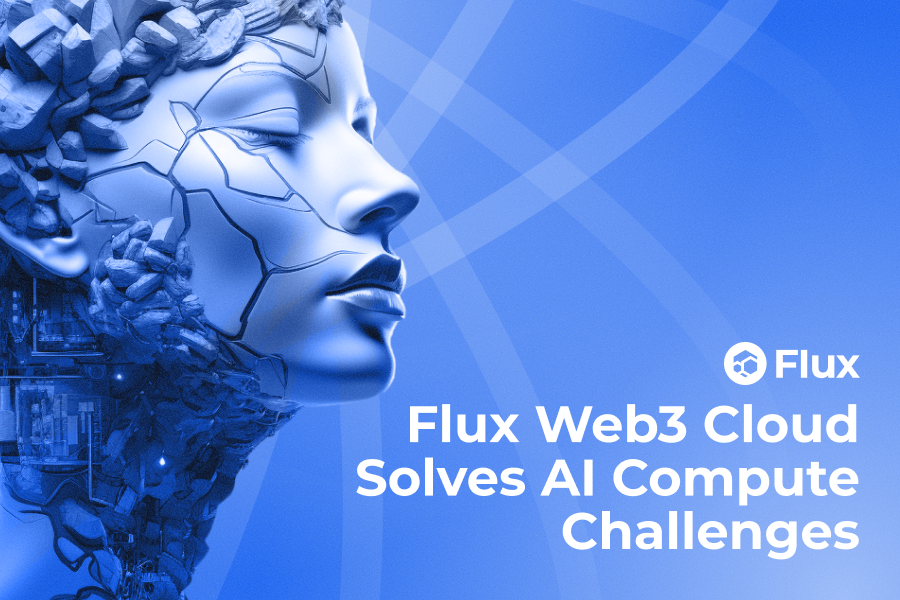
WFA: Can you share an example of a project or application developed on the Flux ecosystem that exemplifies the potential of decentralized computing and its impact on real-world challenges?
DK: A great example of a project on our Flux ecosystem is FluxAI, a decentralized AI platform that provides access to powerful open-source language models and image generation with FluxOne, which ensures complete data privacy. Unlike traditional AI systems, FluxAI doesn’t use user data for training, addressing a key concern for privacy-conscious users and businesses. It operates on a global network powered by FluxCore, our decentralized GPU Network, making it highly scalable, reliable, and resistant to outages or central control.
Our approach with FluxAI also makes AI tools more accessible and cost-effective. By reducing reliance on centralized data centers, it offers a more sustainable and affordable solution for businesses and developers. It highlights how decentralized computing can solve real-world challenges like privacy and accessibility, opening up AI technology to a broader range of users.
WFA: With the emphasis on cross-chain operability in Flux’s offerings, how do you see blockchain interoperability shaping the landscape of decentralized finance (DeFi) and emerging technologies?
DK: Blockchain interoperability is an important factor in shaping the future of decentralized finance (DeFi) and emerging technologies. At Flux, we emphasize cross-chain operability from the start with our parallel assets to enable interactions between different blockchain networks, which removes barriers to collaboration and expands the potential for DeFi. This interoperability allows assets to move freely across multiple chains, unlocking liquidity and creating a more efficient and accessible financial system. It helps developers build more robust decentralized applications (dApps) that can integrate with other blockchain ecosystems, creating more dynamic and versatile solutions for users.
WFA: As AI and blockchain continue to evolve, what emerging technologies are you most excited about integrating into the Flux ecosystem, and how do you foresee these technologies enhancing decentralized computing capabilities?
DK: One of the technologies we’re integrating into the Flux ecosystem is Project Mayhem, the yin to AI’s yang. Its purpose is to keep AI honest by detecting when AI-generated content is being passed off as human. As AI becomes more advanced, this transparency is critical for maintaining trust. By integrating Project Mayhem, we ensure accountability in AI interactions while enhancing the security and ethical standards of decentralized computing. This balance of AI advancement and oversight strengthens the integrity of our ecosystem as both AI and blockchain technologies continue to grow.
WFA: How does Flux plan to educate businesses and individuals about the benefits of decentralized cloud infrastructure, and what resources or programs do you have in place to support this educational mission?
DK: At Flux, we’re focused on meeting people where they are and showing them the real benefits of decentralized cloud infrastructure. We’re putting in the time by attending industry events, hosting workshops, and having real conversations with businesses and individuals to help them understand what we offer. On top of that, we’ve been building out easy-to-follow documentation and support systems, and we’ve even created an AI chatbot to assist with all things Flux, making it easier for anyone to get the help they need, when they need it. It’s all about making sure people feel supported as they explore decentralized solutions.

Thank you, Daniel, for taking the time to share your valuable insights and vision; your leadership at InFlux Technologies is greatly inspiring.
To find out more about the award-winning company and its offerings, please visit https://runonflux.com/
MORE NEWS

Exciting News: Dr. Martha Boeckenfeld Joins the WFA Board
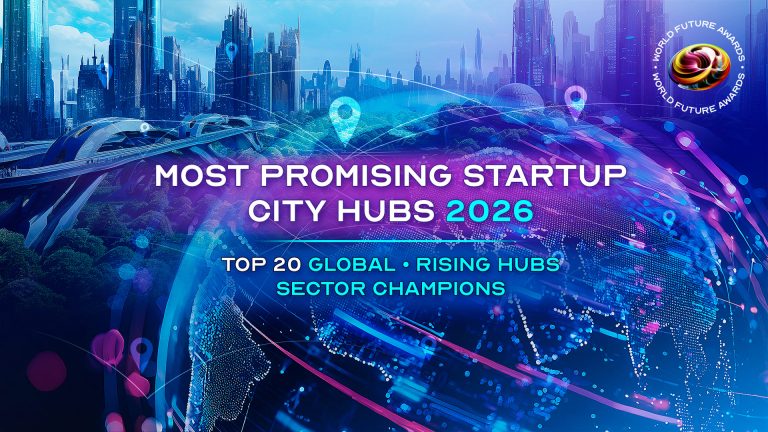
Most Promising Startup City Hubs 2026
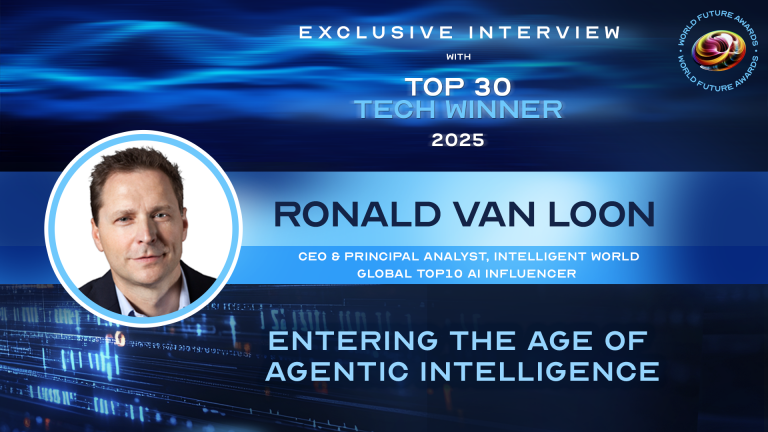
World Future Awards Exclusive: Interview with Ronald van Loon — Top 30 Tech Voices 2025

Defining the Next Era of People Development

Speexx Awarded for Global Workforce Development Innovation
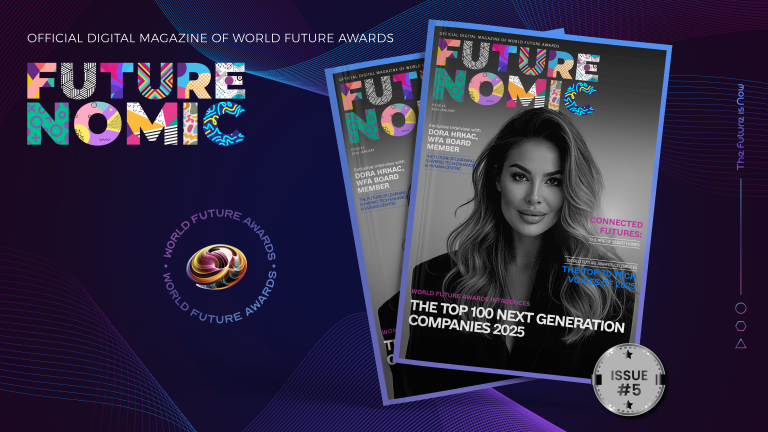
World Future Awards Releases Futurenomics Digital Issue #5
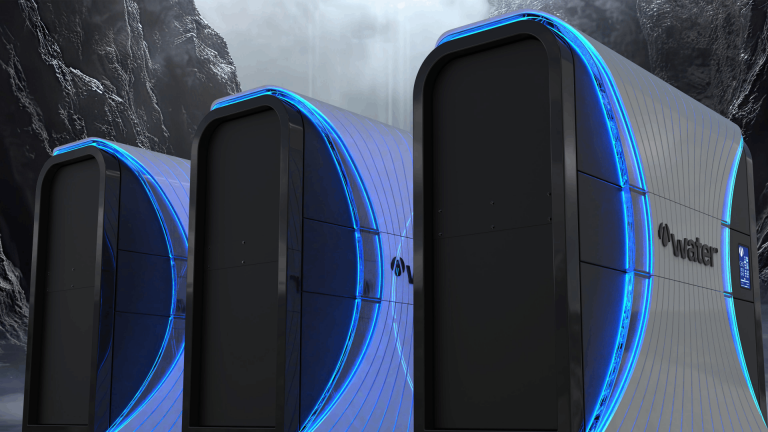
VVater Named One of World Future Awards’ Top 100 Next Generation Companies for 2025
NEWSLETTER
Sign up to learn more about our project and to stay up to date.

